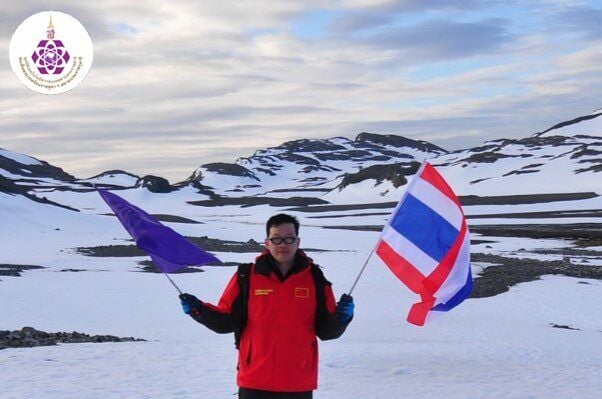Thai scientists find fossil-fuel pollution in Antarctica’s soil

Thai scientists have uncovered evidence of fossil-fuel pollution in the soil of Antarctica, prompting calls for stricter measures to protect the world’s most pristine environment.
A research team, utilising the cutting-edge SR-FTIR microspectroscopy technique at the Thai Synchrotron National Lab in Nakhon Ratchasima, made the discovery in sediment samples collected from five sites across King George Island.
Siwatt Pongpiachan, who leads the Nida Centre for Research and Development of Disaster Prevention & Management and was also part of the research team, explained that the technique could distinguish between organic and non-organic substances and identify chemical bonds within the sediment.
This enabled the team to maintain the integrity of the samples for further analysis while achieving highly accurate results.
“Our results indicated that up to 44% of the soil’s composition consists of organic compounds derived from fossil fuels used to generate electricity, along with traces of machinery smog.”
In comparison, only a quarter of the soil composition was attributed to organic compounds originating from penguin waste and decomposed plant life, such as lichen, ferns, and moss.
The highest levels of contamination were found in areas of human habitation, such as research centres and the airport.
“It is our hope that these findings will underscore the need for appropriate measures to control fossil-fuel combustion activities. Our aim is to keep the island clean and free from any form of polluted contamination.”
Siwatt’s team is part of the 34th Chinese National Antarctic Research Expeditions (CHINARE), an annual scientific exploration of Antarctica.
Back in 2016, Siwatt was part of the 32nd CHINARE exploration, which was focused on analysing the impacts of climate change on the South Pole’s icy landscape. This project was initiated by Princess Sirindhorn, who has a close relationship with the Chinese Arctic and Antarctic Administration (CAA).
Antarctica, the fifth-largest continent and boasting an area of 14 million square kilometres, is a global treasure. The international community has committed to preserving its unspoilt environment, limiting human activities to research purposes only.
Latest Thailand News
Follow The Thaiger on Google News:


























